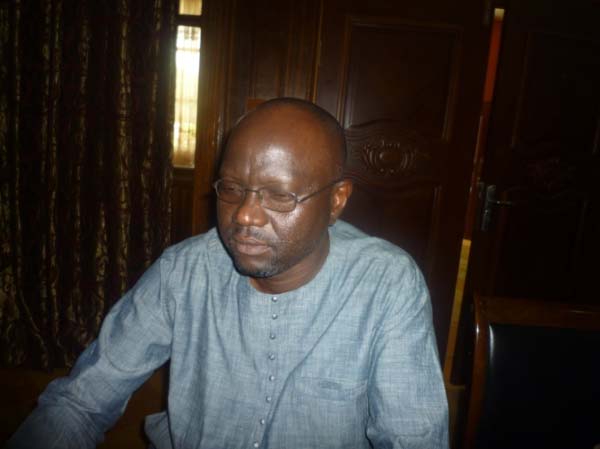
Mr Nget was speaking at the recent graduation of 26 students at the Kafuta Forestry School in the Kombo East district, which included 16 students from the department of Forestry and 10 students from the department of Parks and Wildlife.
He said the disgraceful tradeoff between profits, goods and healthy environment “must stop and would stop only when people like the graduands rise up and say ‘Enough - No more’!”
He urged the graduands and stakeholders throughout the country to join the department of Forestry in denouncing and discouraging all forms of illegal exploitation of the country’s forest resources.
The Forestry director disclosed that the certificate training programme was initiated in 1992 by the department of Forestry through support from the then Gambian-German Forestry Project (GGFP).
The aim was to institutionalise basic forestry training at the local level for capacity development of newly-recruited forest guards of the department of Forestry, with the objective of strengthening its institutional capacity to be in a better position to implement the new forestry concepts and approaches.
This, he went on, included the Gambia Forest Management Concept (GFMC), which is a binding framework for forest management in the country that puts the rural population at the center of managing the Gambia’s forest resources.
Mr Nget urged the graduands to be excellent ambassadors of the school by effectively applying the skills learnt during their training, as this would serve as a yardstick to further justify the need for more investment to maintain the vital functions of the establishment in providing the required trained subordinate staff for the institution.
“The development of the perception of the forest as economically valuable, coupled with numerous other anthropogenic and natural factors have been putting lots of pressure on the resources; thus resulting in serious deforestation and degradation and, therefore, heavy loss of habitats for our fauna.”
Sustained yield production of timber and other forest products is an essential tool for any successful forest protection, he continued, adding that they are expected to leave up to expectations by becoming good forest and wildlife managers, who put national interest before personal interest and who would promote the ideals of sustained yield management principles and practices.
“I urge you to strengthen and further promote the participatory forest and Protected Area Management approaches being vigorously pursued by both the department of Forestry and the department of Parks and Wildlife, as part of their strategies to put more forest areas under sustainable management.”
He also urged them to create networks and partnerships among themselves and different institutions to fight against all forms of illegal exploitation of forest and wildlife resources.
Mr Nget reminded them that forest management under the sustained yield principles could contribute to the socio-economic development of the country, by providing economic returns through the sale of products and services, as well as the creation of employment opportunities for many people.
Also speaking at the ceremony was the principal of forestry school, Momodou Lamin Njai, who said the institution was set up to cater for the growing need for basic forestry knowledge in the management, protection, conservation and rational utilisation of the forest resources in The Gambia.
The aim, he noted, is to achieve both the short and long term objectives of the forest and wildlife policies; “thus the prospect of balanced ecosystem in advancing the socio-economic development of The Gambia would be achieved”.
Mr Njai further stated that the department of Forestry and the department of Parks and Wildlife “remain committed” to sound forest and wildlife management, and “have attached a great deal of interest in building the capacities” of their staff for effective service delivery.
“The Gambia as a country suffers immensely from all forms of forest destruction, including bushfires that virtually consume all vegetation cover yearly, resulting in great reduction of grazing fodder materials for both wild and domestic animals.”
He challenged all and sundry to join efforts at preventing the occurrence of bushfires, and participate fully in the control exercise whenever and wherever they occur.




